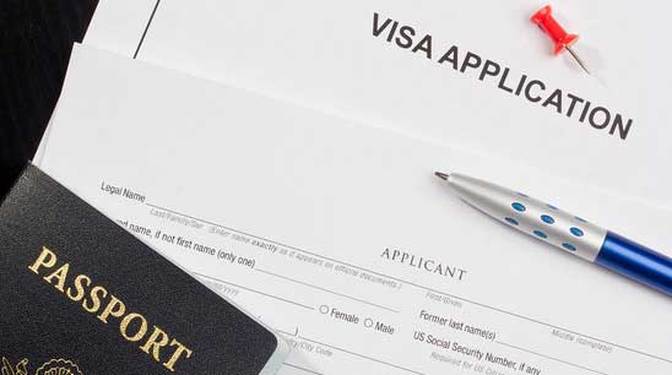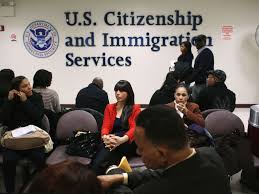On February 16, 2018, United States Citizenship and Immigration Services (USCIS) published its final Policy Memorandum entitled “Signatures on Paper Applications, Petitions, Requests, and Other Documents Filed with U.S. Citizenship and Immigration Services.” To read the full text of this final Policy Memorandum, click here.
So why did USCIS make these changes to its signature requirements? USCIS reversed their interim memorandum’s policy, which allowed power of attorney signatures on immigration documents, because they were concerned about consistency, fraud, and program integrity.
The following are the key takeaway points from the February 16, 2018 final policy memorandum on signature requirements:
- USCIS requires a valid signature on an application, petition, request, and certain other documents filed with USCIS (“request”)[1]. Except as specifically authorized in the regulations, or this policy memorandum, or in the respective form instructions, an applicant, petitioner, or requester (“requester”) must personally sign his or her own request before filing it with USCIS.[2]
- A valid signature must be a handwritten mark or sign. USICS will not accept signatures that were created with a word processor, typewriter, stamp, auto-pen, or other similar type of device.
- Exception: If a child is under 14 years of age, a parent or legal guardian of that child may sign a request or document on behalf of that child.
- Exception: If an individual is mentally incompetent, regardless of their age, a legal guardian may sign a request for a mentally incompetent person. Note: for signatures on USCIS forms, USCIS states that “a legal guardian means a person who a proper court or public authority has designated as the applicant’s legal guardian or surrogate and who is authorized to exercise legal authority over the applicant’s affairs. If the appropriate court or public authority has given an individual this authority, USCIS considers this individual to be a “legal guardian” who may sign for the child or mentally incompetent person.”[3]
- Exception: The term “individual” excludes corporations or other legal entities as well signatures on paper applications, petitions, requests, and other documents filed with USCIS as attorneys, accredited representatives, agents, preparers, and interpreters.
Pursuant to the final policy memorandum, only these people have the authority to sign such immigration documents that will be filed with USCIS. Examples of these permitted signators include the following:
- An executive officer of a corporation or P.C. with authority to act on behalf of the corporate entity and legally bind and commit the corporate entity in all matters (such as the chief executive officer, president, vice president);
- A managing member or managing partner of an LLC or LLP;
- A duly authorized partner of a partnership;
- An attorney employed in an employer-employee relationship by the corporation or other legal entity as its legal representative or as a legal representative by the corporation or other legal entity’s legal department in an employer-employee relationship (such as in- house counsel or other attorney employees);
- A person employed in an employer-employee relationship as a human resources professional within the entity’s human resources, human capital, employee relations, personnel, or similar department who is authorized to sign legal documents on behalf of the corporation or other legal entity;
- An executor or administrator of an estate;
- A trustee of a trust or a properly appointed conservator; or
- Any other person employed in an employer-employee relationship by the corporation or other legal entity who has the authority to legally bind and commit the corporation or other legal entity to the terms and conditions attached to the specific request and attestations made in the request.6 It does not matter what this person’s title is or the name of this person’s department with the corporation or other legal entity. [4]
[1] In this policy memorandum, USCIS uses the term “request” to refer to “any written request for an immigration benefit, service, or request for action, whether the request is submitted on an OMB-approved form or is an informal written request submitted to USCIS. The term also includes any form supplements and any other materials that require the signature of the requester. The only exception to this requirement is for naturalization applications where a “designated representative,” as defined in the Policy Manual, may sign an application on behalf of an applicant who otherwise qualifies for an oath waiver under INA 337(a) because of a physical or developmental disability or mental impairment.” See
https://www.uscis.gov/sites/default/files/USCIS/Laws/Memoranda/2018/2018-02-16-PM-602-0134.1-Signatures-on-Paper-Applications-Petitions-Requests-and-Other-Documents.pdf
[2] https://www.uscis.gov/sites/default/files/USCIS/Laws/Memoranda/2018/2018-02-16-PM-602-0134.1-Signatures-on-Paper-Applications-Petitions-Requests-and-Other-Documents.pdf
[3] https://www.uscis.gov/sites/default/files/USCIS/Laws/Memoranda/2018/2018-02-16-PM-602-0134.1-Signatures-on-Paper-Applications-Petitions-Requests-and-Other-Documents.pdf
[4] https://www.uscis.gov/sites/default/files/USCIS/Laws/Memoranda/2018/2018-02-16-PM-602-0134.1-Signatures-on-Paper-Applications-Petitions-Requests-and-Other-Documents.pdf



 RSS Feed
RSS Feed
